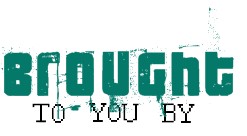GDC 15: Advancing the genre of comedy games with Zoe Quinn

 hile the concept of a video game striving to be funny is far from groundbreaking, titles that veer more towards everything humorous has yet to be recognized as its own genre, and some developers are aiming to change that.
hile the concept of a video game striving to be funny is far from groundbreaking, titles that veer more towards everything humorous has yet to be recognized as its own genre, and some developers are aiming to change that.
Zoe Quinn took to the stage as she campaigned that the science of comedy can be adapted into the format of interactive media like video games successfully if given the right attention to the details that compose the humor.
While the irony of an independent developer who’s primarily known for releasing a title simulates depression wasn’t lost on her, she muses that the struggle of her emotional conditions have helped her to appreciate the nuance of comedy, and she presses forward with some ideas that can help this budding design of gameplay flourish in today’s market of indie games.
She begins with a personal plea of embargo on the types of comedy she feels have become commonplace for developers when it comes to injecting humor into their game development.
The fields of comedic taste she believes to be seen frequently in gaming are styles that center on satire, referential, and juvenile fart and poop humor—and there’s nothing wrong with these kinds of comedy, but Zoe suggests that game developers strive towards restructuring them, better refining them in order for the genre to grow.
As an example, she brings attention to the fine line that separates mimicry and satire; using critical analysis over the subject material can bring a new depth of mock-comedy will make the joke funny instead of pandering.
Other examples that Zoe brings to the stage is the convention of Breaking-The-Fourth-Wall, a method where the game and its presentation are self-aware of what they actually are, intentionally letting the players in on the joke. Although the method has arguably breached the limits of saturation, she still feels that this process of comedy can work as long as it's consistent, yet mindful of the humor’s role in this sort of direction, and a lot of that hinges upon the key elements that she stresses are vital for this, or potentially any joke in a video game to work.

According to the iconic designer, the suggestive points she points at the game industry to start with, is the Delivery, timing, and pacing. Building around these factors help to create jokes that are subversive and surprising; a direction that she dictates is one of the more effective approaches of comedy through the filter of a video game.
The hurdle when it comes to implementing this sort of strategy into a gameplay system is admittedly daunting, but she preaches that payoff and laughter that it can create can be as easily as memorable as classic comedy film, only with the additional element of engagement with an audience that can trigger these moments, empowering their own sense of humor and comedic tastes in the process.
Going beyond the realm of games that designed to funny, our experienced speaker clarifies that these ideal can also apply to games that are more tongue-in-cheek than intentional in their comedic approach.
While there an abundance of title that have delivered a degree of ironic humor in ways it was never meant to, this kind of direction is something that designers can naturally work towards, as long as their approach is followed through with a sense of subtlety that carries the same natural tone that the ironic humor it’s based off of does. Zoe emphasizes that surprise and subversion is especially essential for this method of comedy to be effective.
There’s one last constant rule that Quinn states must always be enforced for any variety to be done well in a video game; Developers must use the world to deliver the joke, and so in a manner that remains consistent with the source material of the world and thee joke it’s trying to tell. Citing Jazzpunk as an example, in spite of all absurdity and surreal occurrences that paces players through, the game always labored towards making sure that the jokes and their punchlines held some sort of connection to material that was relevant to the overall fiction of the game.
Trying to be funny is easier said than done, and the concept does command a level of commitment and passion for it to work, no matter what manner it’s applied towards. With visionaries like Zoe Quinn on hand though, her ideals bring hope that the potential future for the budding genre of comedic games is in good hands, or flippers, or whatever.
 Comedy Games,
Comedy Games,  GDC 15,
GDC 15,  Goat Simulator,
Goat Simulator,  Jazz Punk,
Jazz Punk,  The Stanley Parable,
The Stanley Parable,  Zoe Quinn | in
Zoe Quinn | in  Features
Features 









